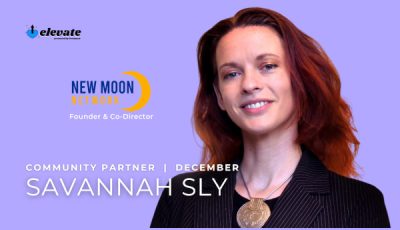Every Year, The Big Game Brings Out The Big Myths
 INGLEWOOD, Calif. – Every year, when the “Big Game” rolls around, we’re told the event has all sorts of ill effects, from a spike in domestic violence to a dramatic increase in sex trafficking. The data, on the other hand, tells a very different story.
INGLEWOOD, Calif. – Every year, when the “Big Game” rolls around, we’re told the event has all sorts of ill effects, from a spike in domestic violence to a dramatic increase in sex trafficking. The data, on the other hand, tells a very different story.
Back in 2015, I wrote about the alleged connection between the Super Bowl and domestic violence. Snopes fact-checked the “domestic violence spike” claim as far back as 2001. The facts haven’t changed in the interim; data to support this claim simply does not exist.
You can easily find people who will say I’m wrong. Those people likely will cite a pile of anecdotal evidence. They will link to articles that repeat the claim about the Super Bowl domestic violence spike, but that offer no citation for their statistics – if indeed they offer any supporting statistics in the first place, which they generally do not.
The Woodhull Freedom Foundation has been active this week in trying to get people to pay attention to the fact there’s no data to support the claims about a spike in sex trafficking, either.
“After partnering with SOAR Institute to conduct a careful analysis of the situation, Woodhull concludes that the dangerous uptick in sex trafficking is a myth…. long-encouraged by law enforcement, state/national governments and the media, (which) has been continually disproven but continues to circulate – leading to confusion on all sides of the issue,” the organization said in a statement released Tuesday.
Among other things, the Woodhull/SOAR Institute report found that “(w)hile ads for sex may increase during the Super Bowl, instances of commercial sex and trafficking do not.”
“Researchers from the University of Texas, Austin, and the University of Minnesota, Twin Cities, found that claims about increases in sex trafficking during the event are false and may reflect false socio-cultural fears ‘about sexuality and sexual exploitation that depict men as aggressive and autonomous, and women as victims in need of rescue or as criminals who should be arrested’,” Woodhull noted in its statement.
Worse than simply peddling misinformation, the people and organizations promoting the myth of a sex trafficking spike are causing law enforcement resources to be diverted in pursuit of a nonexistent crime wave, depriving actual crime victims of those same resources.
“Trafficking hysteria around the Super Bowl causes host cities to increase police surveillance, and thanks to the conflation between adult consensual sex work and human trafficking, much of these resources are used to police and arrest sex workers rather than engaging in prevention at the expense of those experiencing exploitation,” Woodhull stated.
Other conclusions from the Woodhull/SOAR report include:
-The myth helps serve as a narrative to benefit nonprofits and NGOs fighting trafficking around these events, virtual signaling national/state/local governments, media and those who want to justify their social control measures such as increased policing and migration controls based on anti-prostitution ideology.
-Criminalization prevents those participating in commercial sex from reporting crimes committed against them for fear of arrest. Even trafficking survivors participating in commercial sex because of force, fraud or coercion fear criminal justice penalties if they come forward as a result of the massive stigma and risk of arrest surrounding sex work. In a criminalized environment, sex workers also have less agency to engage in safe sexual practices and less access to medical care.
-Increased policing has disproportionate consequences for communities with intersectioning vulnerabilities. Members of LGBTQ communities, communities of color, the unhoused, and immigrants are among those disproportionately targeted by law enforcement as sex workers. Black adults make up over half of the people arrested for loitering for the purpose of prostitution in Los Angeles, even though they are only 8.9% of the city’s population.
-Human trafficking is a problem that persists year-round. As the Polaris Project pointed out in 2019, encouraging hysteria around specific events detracts from the need to establish effective, holistic policy responses rather than sensationalized rhetoric.
Another notion I’ll throw into the mix: If governments, elected officials and law enforcement around the country truly believe the Super Bowl causes a massive spike in both sex trafficking and domestic violence, why would any city want to host the damn thing?
If you’re familiar with the way zoning laws work, then you know about the pernicious “secondary effects” doctrine, which governments use to justify zoning adult businesses into specific areas — often undesirable areas, from the perspective of adult business owners. As the reasoning behind the doctrine goes, these businesses bring with them crime, blight, a reduction in property values and assorted other ill effects.
If the Super Bowl is causing sex trafficking to spike in host cities and causing domestic violence to spike globally (after all, why would the game not cause the same domestic violence spike in all 180+ countries where the game is broadcast?), why are there no calls in state legislatures or the U.S. Congress to regulate the Super Bowl? So far as I’m aware, the only real restriction is that a city must have a stadium that’s up to snuff and the local infrastructure to support a large influx of traveling fans, approximately 3 billion members of the media — and all those pimps who presumably travel into town to cause the big spike in local sex trafficking, of course.
Clearly, the game causes negative secondary effects – why have no socially conservative politicians stepped up to demand that the game be played without television coverage to “protect young minds”? Why has no NIMBY group demanded that the game be moved to the middle of the Mojave Desert, or better yet, the moon?
It’s enough to make a cynic think maybe they don’t really believe these myths, themselves.
Football image by Jean-Daniel Francoeur from Pexels













